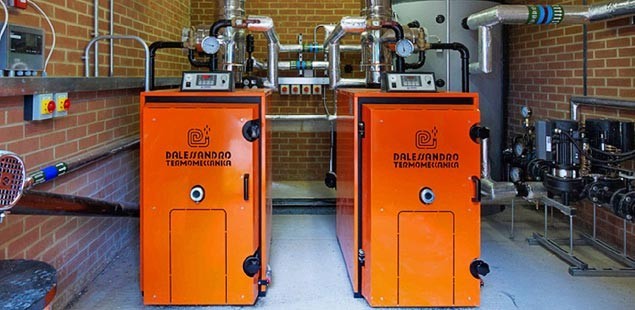
If you’re considering installing a biomass boiler, you’ll probably know it will need a bit more looking after than an ordinary gas boiler. A gas boiler needs to be checked by an engineer every year, but with a biomass boiler, you’ll need to give it more regular care. Most of it’s pretty easy, but it is worth considering before you commit whether you are willing to put in the extra time and effort!
The amount of attention it needs depends on the model and the type of fuel you use. Wood logs, chips and pellets all burn in different ways and create different amounts of waste – and some high-end biomass boilers have extra features which mean they can look after themselves to a certain extent.
In order to keep your system running efficiently and to ensure a good return on your investment, it is important to provide adequate maintenance. The following gives you an idea of what you will need to do:
Daily – A visual inspection and cleaning of any components where necessary
Weekly – Check the ash level and empty if necessary. Check gear motors for oil leaks.
Monthly – Scrape the combustion chamber and remove any bad ash. Also check the grate.
3 Monthly – Wipe the flue gas sensor, clean the lambda probe and check the grate.
6 Monthly – Check and clean the flue gas return, inspect the operational drives, check the motors, clean the heat exchangers and clean the combustion chamber.
Annually – This is usually carried out via a service contract with the installer. Multiple checks, as well as cleaning the flue and greasing the bearings.
Cleaning your biomass boiler
Some biomass boilers will need cleaning more often than others. Ash can collect in the combustion chamber, heat exchanger and flue/chimney, lowering the efficiency of the boiler. Although good quality wood fuel will produce less ash, it will still need clearing out now and then. Most non self-cleaning boilers will need cleaning every week, and they should be completely shut down and cooled beforehand. The manufacturer’s instructions will tell you how often your boiler should be cleaned. Some top models even automatically notify you when they need cleaning.
If your biomass boiler is self-cleaning, ash will collect in the ash bin, so you’ll only have to empty that. Some have a mechanism for compressing the ash, so it may only need emptying as little as once a year.
Some biomass boilers will feed automatically. These systems need to be checked at least once a week to check for build ups or blockages.
You should also get your biomass boiler serviced once a year to make sure you qualify for RHI payments.
Performance monitoring
It is important to also monitor the heat output of your biomass system, as this can be an early warning sign to flag up any problems. There are two monitoring types you can use:
- Ultrasonic – Cheap and easy to install, these monitors are likely sufficient for smaller plants, but have an accuracy of only +/- 4%. They can be clamped onto an existing system without the need for any intrusive works. The monitor works by installing two sensors on the flow pipe to measure temperature, density and specific heat capacity of the liquid. They do have the disadvantage of reducing in accuracy over time, as the pipe deteriorates, but can be a good cost effective option for some systems
- Electromagnetic – More accurate, but also more expensive than ultrasonic. These monitors need to be professionally fitted. They are ideal if you are entering into a contract based on delivered heat.
Fuel monitoring
It is important to monitor the quality of your fuel, especially if you are using solid biomass. This can be done in a number of ways and is dependent on the requirements and resources available to you.
- You can check moisture content with anything from a simple touch test, to a timber conductivity meter, or an oven dry test, where the weight is measured before and after the moisture is extracted.
- Particle size can be checked by anything from a visual inspection to a sieve test.
- Checking for contamination is also another important measure. You can do a visual inspection to check for foreign bodies (stones, plastic etc.), do some in-house tests, or send a sample away to a laboratory.
Again this depends on both the source and type of the fuel, whilst taking into account the means and needs of the site.
If looked after properly, a biomass boiler should last at least ten years.
Installing a Biomass Boiler
Are you thinking about installing a biomass boiler? We have scoured the country for the best tradespeople, so that we can make sure we only recommend those we really trust.
If you would like us to find you a local installer, just fill in the form below and we will be in touch shortly!












Can you help me find somewhere that trains biomass boiler engineers? We are having difficulty finding local engineers and I wondered if I could be trained to service the boiler myself?..
Thank you for your assistance
Kind regards
David McLennan
Hi David,
We don’t have anyone in our network at the moment that would be able to provide training, but I suggest that you get in touch with the Energy Saving Trust. They’re a government funded body who should be able to let you know if there’s anyone in your area doing that kind of thing. You can reach them on 0207 222 0101.